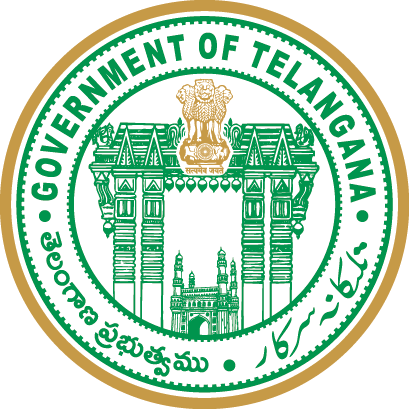Department of Chemistry
About the Department:
About the Department: The Department offers undergraduate program Bachelor of Science (B.Sc.) in Chemistry along with other life sciences and physical sciences. It has a team of dedicated faculty members who would be responsible for teaching, research, and guiding students in their academic pursuits in Chemistry.The department has a well-equipped laboratory. The lab provides student with hands-on experience and practical training in various chemical techniques and experiments.In addition to teaching, the faculty and students are engaged in research projects covering various subfields of chemistry, such as organic, inorganic, physical, analytical, and biochemistry.The department follows the Palamur University, Mahaboobnagar, Telangana state, prescribed syllabus and designs its own annual curriculum to cover a broad range of chemistry topics, including core courses in organic chemistry, inorganic chemistry, physical chemistry, and analytical chemistry. The department involves in outreach programs to engage with the local community, promoting science education and awareness which includes organizing science fairs and workshops. Both Students and faculty engage in extracurricular activities like seminars and workshops, to enhance their knowledge and skills beyond the classroom. The Department collaborates with other departments and institutions, both within Telangana and outside for research and academic purposes.The department has appropriate infrastructure, including classrooms, library, Laboratory and support staff to facilitate the smooth operation of academic and research activities.The department also offer career guidance and placement support to help students pursue various career paths after completing their degrees, including careers in academia, industry, and government.
""The Department of Chemistry envisions itself as a centre of excellence in chemical education and research, dedicated to fostering academic and intellectual growth in a rural setting. Our vision is to empower students with a strong foundation in chemistry, equipping them to contribute to society and industry through knowledge, innovation, and sustainability."."
- To provide a high-quality education in the field of chemistry, focusing on foundational principles, practical skills, and research opportunities, to equip our students for successful careers and lifelong learning. To promote research and innovation in the field of chemistry, with an emphasis on addressing local and regional challenges, such as water purification, agriculture, and renewable energy sources, to benefit our rural community. To engage with the local community, offering expertise and resources to address chemical and environmental issues, and to foster an understanding of the importance of chemistry in everyday life. To instil in our students a strong sense of ethical and social responsibility, emphasizing the safe and responsible use of chemical knowledge, and encouraging them to contribute to the betterment of society To collaborate with other educational institutions, research organizations, and industries to enhance the learning and research opportunities available to our students and faculty. To create an inclusive and empowering learning environment that encourages diversity and supports the aspirations of all students, irrespective of their backgrounds. To prepare our students for a wide range of career opportunities in academia, industry, research, and public service, while nurturing their critical thinking and problem-solving skills. To continuously assess and improve our academic programs, facilities, and teaching methodologies to meet the evolving needs and expectations of our students and stakeholders. ."
- To advance in zoological research, with a focus on the unique flora and fauna of our region. We encourage faculty and students to engage in meaningful research projects that contribute to our understanding of local ecosystems and wildlife conservation."
- To connect with and serve our local communities, through outreach, education, and collaborative projects, we aim to raise awareness about wildlife conservation, sustainable practices, and the importance of preserving our natural heritage."
- To promote a culture of environmental responsibility and ethical conduct in all our activities. We are dedicated to the conservation and protection of the fragile ecosystems in rural Telangana.
- To foster interdisciplinary collaboration with other departments and institutions, recognizing that solving complex environmental issues often requires diverse expertise and perspectives.
- To empower our students to become future leaders in zoological research and conservation. We provide opportunities for hands-on learning, critical thinking, and experiential education."
- To respect and celebrate the rich cultural heritage of Rural Telangana and its relationship with the natural world. We aim to integrate traditional knowledge and practices into our conservation efforts.
- To actively seek partnerships with governmental bodies, non-governmental organizations, and local stakeholders to collectively address environmental challenges and enhance the well-being of our region."
- To encourage global awareness by fostering an international perspective on zoology and biodiversity, promoting the exchange of knowledge and ideas.
- Teaching And Acadamic Programmes:The primary activity of the department is teaching various topics within the field of chemistry for undergraduate students.
- Laboratory Work:Provides practical laboratory sessions where students can conduct experiments, gain hands-on experience, and develop essential laboratory skills.
- Research Initiatives:The Engages faculty and students in research projects in areas relevant to the rural community's needs, such as agricultural chemistry, water quality analysis, or environmental chemistry.
- Student Projects: Encourages students to undertake research projects or independent studies to for the Jignasa and also deepen their knowledge and analytical skills.
- Seminars and Workshops:Organizes seminars and workshops on emerging topics in chemistry, as well as inviting guest speakers to share their expertise with students and faculty.
- Outreach and Community Engagement:Collaborates with local schools, farmers, and community organizations to provide chemistry-related educational programs, workshops, and services. This includes water testing, soil analysis, or science outreach to local schools.
- Internships and Industrial Collaborations:Facilitates internships and partnerships with local industries, research organizations, and government agencies to provide students with real-world exposure and practical experience.
- Conferences and Symposia:Hosting or participating in regional and national chemistry conferences and symposia to showcase research findings and foster collaboration with other institutions.
- Student Clubs and Activities:Supports chemistry-related student clubs like Eco clubs and organizations, which may organize events, field trips, and outreach activities.
- Publication and Dissemination:Encourages faculty and students to publish research findings in academic journals and present them at conferences. Sharing knowledge and research outcomes with the wider scientific community.
- Career Counselling:Provides guidance and support to students for career planning in various fields related to chemistry, such as academia, industry, research, and public service.
- Continuing Education:Offers continuing education programs, workshops, or short courses to cater to the professional development and lifelong learning needs of the local community.
- Facility Maintenance:Ensures that laboratory and research facilities are well-maintained and equipped with the necessary resources for effective teaching and research.
- Assessment and Quality Improvement:Regularly assesses the effectiveness of teaching, research, and outreach activities, and making improvements based on feedback and evaluations.
- Spectroscopy and Chromatography,
- Medicinal Chemistry,
- SEC- I (Safety rules in chemistry laboratory and Lab Reagents).
Students will get opportunities in higher education, career advancement, such as pursuing advanced degrees (Masters or Ph.D.) or obtaining professional certifications. The programme outcome encompass academic, career, personal development, and community contributions. Some of the important outcomes of studying Chemistry are as follows: Students will gain a deep and comprehensive understanding of the fundamental principles of chemistry, including organic, inorganic, physical, and analytical chemistry. They will develop strong laboratory and practical skills, allowing them to perform experiments, conduct research, and analyse data effectively. Chemistry education fosters critical thinking and problem-solving skills, which can be applied to various real-world challenges. Students can gain experience in designing experiments, collecting data, and drawing conclusions, which are essential for research careers. After graduation students can pursue a variety of career paths, including positions in academia, research institutions, pharmaceutical companies, chemical industries, environmental agencies, and government organizations. Students can use their knowledge to address local issues, such as water quality analysis, soil testing, or environmental conservation, making a positive impact on the rural community. Education in Chemistry empowers students with the knowledge and skills needed to make informed decisions about chemical and environmental issues in their everyday lives. Students can establish connections with peers, professors, and professionals, which can open up opportunities for collaboration, internships, and job placements. The students can contribute to the overall development of the region by addressing local needs, fostering scientific awareness, and supporting community projects..
Studying Chemistry at degree levelwill provide the students with a solid foundation in the field and opens up various career opportunities. While the specific career paths may vary depends on the student interests, qualifications, and the resources available in the region.Some of the important career opportunities for students who pursues graduation in Chemistry. Students canopt to pursue postgraduate degrees (Masters or Ph.D.) to specialize in a specific area of chemistry or to improve their job prospects in research and academia. Students can become chemistry teachers at schools or colleges. They can also pursue advanced degrees (M.Sc., M.Phil. or Ph.D.) to qualify for professorial positions at colleges and universities. Opportunities in research and development in pharmaceutical, chemical, and agricultural companies where students can involve designing experiments, conducting research, and developing new products or processes. Students can work in chemical manufacturing plants, petrochemical industries, and other chemical companies in connection with production, quality control, and process optimization. As there is a growing demand for chemists in environmental monitoring and analysis, students can work with government agencies, environmental consultancies, or non-profit organizations to assess and mitigate environmental issues. Students can work in the rural areas for the development and application of agrochemicals, fertilizers, and pesticides, as well as soil and water testing. Students can get the opportunity to work in various laboratories for quality assurance of the products to meet the standards and regulatory requirements. The pharmaceutical industry offers positions in research, quality control, formulation development, and regulatory affairs and as a Chemists in this field for drugsmanufacturing and development. Students can choose a career in forensic science, where they can analyse evidence in criminal investigations, such as drug testing, toxicology, and trace analysis. Government agencies at the local, state, and national levels employ chemists for roles in environmental protection, public health, and regulatory compliance. Analytical chemists work in laboratories to analyse and test various substances and they can be employed in a wide range of industries, including environmental analysis, food testing, and materials analysis. Students can work as independent consultants or join consulting firms that provide expertise in various fields, including environmental consulting and risk assessment. There are many opportunities exist for chemical and laboratory equipment companies. Chemists in this field help customers choose the right products and provide technical support. Students can choose and start their own businesses, such as chemical testing labs, agricultural consulting firms, or small-scale manufacturing operations.

